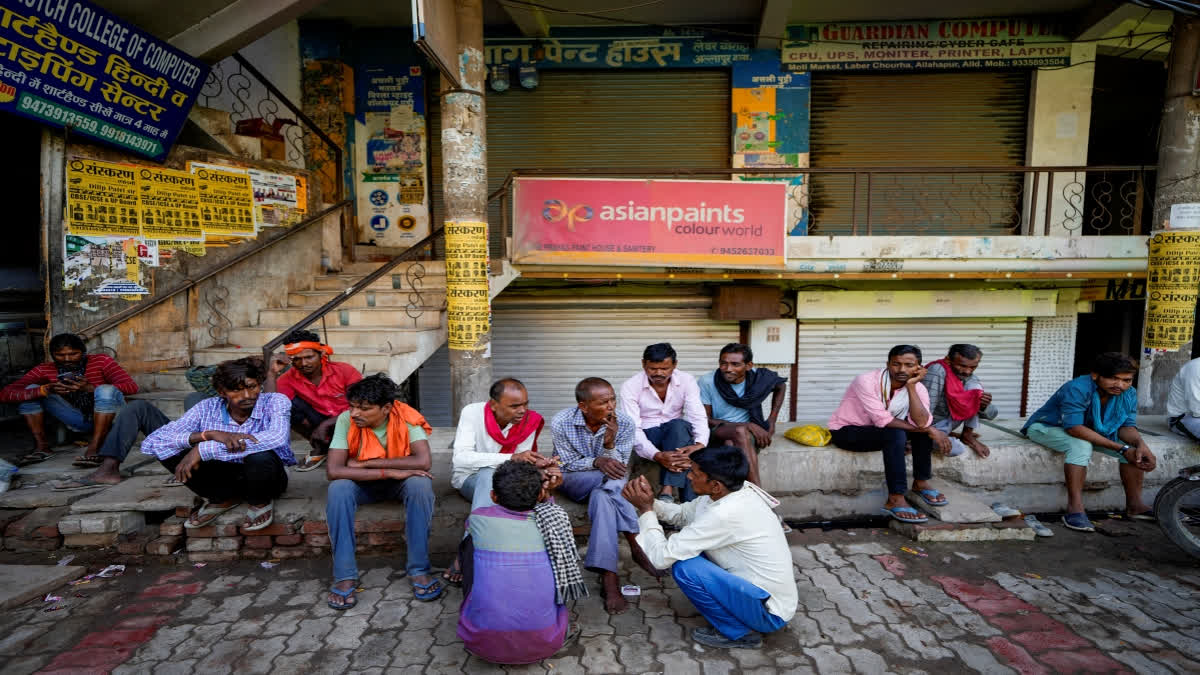New Delhi: India is ranked 109th out of 166 countries in the Sustainable Development Report 2024. This annual report tracks how well countries are making progress toward the Sustainable Development Goals (SDGs) since they were adopted by 193 UN Member States in 2015. Released just before the UN Summit of the Future, this year's report suggests important changes to the UN system to better tackle the challenges of our time.
India’s SDG index score stands at 63.99, which shows how much progress the country has made toward achieving all 17 SDGs. This score is a percentage, where 100 would mean all the goals are fully met. Many of India’s neighbours have higher rankings and scores. On the report’s map, India is shown in the yellow zone, indicating that there are still considerable challenges ahead.
The top five countries leading in SDG achievement are Finland (86.4), Sweden (85.7), Denmark (85.0), Germany (83.4), and France (82.8). At the other end of the scale, the countries with the lowest scores are Yemen (46.9), Somalia (45.4), Chad (45.1), the Central African Republic (44.2), and South Sudan (40.1).
Other Countries
Nepal is ranked 95th with an SDG score of 67.1.
Sri Lanka is ranked 93rd with an SDG score of 67.4.
Bangladesh is ranked 107th with an SDG score of 64.3.
China is ranked 68th with an SDG score of 70.9.
Bhutan is ranked 61st with an SDG score of 72.5.
The United States is ranked 46th with an SDG score of 74.4.
Pakistan is ranked 137th with an SDG score of 57.
The report highlights that SDG targets concerning food and land systems are significantly off-track. It examines three potential pathways for achieving sustainable food and land systems. By 2030, an estimated 600 million people will still face hunger, obesity rates are rising, and greenhouse gas emissions from agriculture, forestry and other land use will account for nearly a quarter of global annual GHG emissions.
The Food, Agriculture, Biodiversity, Land-Use, and Energy Consortium, which includes over 80 researchers from 22 countries, evaluated different national scenarios to assess how 16 targets related to food security, climate mitigation, biodiversity conservation, and water quality might be achieved by 2030 and 2050. Their findings indicate that continuing current trends will widen the gap between countries on climate mitigation, biodiversity and water quality targets. Although following existing national commitments could lead to some improvement, these efforts are still largely inadequate.
About the report
The Sustainable Development Report (SDR) provides an annual review of how well countries are advancing towards the Sustainable Development Goals (SDGs), which were adopted by 193 UN Member States in 2015. The 2024 edition, released just ahead of the UN Summit of the Future, highlights key reforms needed for the UN system to effectively tackle 21st-century challenges. It also introduces a new index that measures how much countries support UN-based multilateralism and explores long-term strategies for achieving sustainable food and land systems.
This year's report shows the progress of all 193 UN Member States, with Finland, Sweden and Denmark leading the way. For the first time, the SDG Index includes Guinea-Bissau among the 167 ranked countries. The report also offers insights into the performance of the BRICS nations (Brazil, Russia, India, China, and South Africa) and the new BRICS+ group, which now includes Egypt, Ethiopia, Iran, Saudi Arabia, and the United Arab Emirates, who joined in 2023.
Key Highlights
According to the report, just 16 per cent of the SDG targets are on track to be achieved globally by 2030. Unfortunately, 84 per cent are either advancing slowly or going backwards. Progress towards these goals varies greatly between different groups of countries. The report suggests that Nordic nations are leading the way in achieving the SDGs, while BRICS countries are making noteworthy progress. Meanwhile, poorer and more vulnerable countries are struggling and falling significantly behind.
Need for Global Financing
The report highlights that sustainable development continues to be a long-term investment challenge and underscores the urgent need to reform the global financial system. Addressing global issues often requires resources that go beyond what any single nation can provide. Low-income and lower-middle-income countries urgently need access to affordable, long-term capital to make significant investments and meet their sustainable development goals.
To mobilise the necessary financial resources, the report suggests we need to create new institutions, explore innovative global financing mechanisms (including global taxation) and prioritise investments in areas like quality education for everyone. It outlines five key strategies for overhauling the global financial system. Tackling global challenges effectively demands global cooperation. In this context, Barbados is recognised for its strong commitment to UN-based multilateralism, while the United States is noted as lagging behind.
Suggestions
The report recommends that to tackle global challenges, countries should focus on reducing overconsumption and shifting dietary habits away from animal-based proteins while respecting cultural preferences. Nations should also invest in increasing productivity, particularly in areas and sectors with high demand growth. Additionally, implementing inclusive, robust, and transparent monitoring systems is crucial to prevent deforestation. Following these strategies could help avoid up to 100 million hectares of deforestation by 2030 and 100 gigatons of CO2 emissions by 2050. More measures are needed to address potential trade-offs, such as impacts on on-farm employment and water pollution from excessive fertilizer use, and to ensure that efforts to end hunger are inclusive.
Each country's actions can influence other nations' ability to achieve the SDGs, either positively or negatively. The Spillover Index measures these impacts across three areas: environmental and social effects through trade, economic and financial effects, and security. A higher score on this index indicates that a country generates more positive spillovers and fewer negative ones.
Read more: Kerala And Uttarakhand Lead In NITI Aayog's SDG India Index; Bihar Ranks Last



